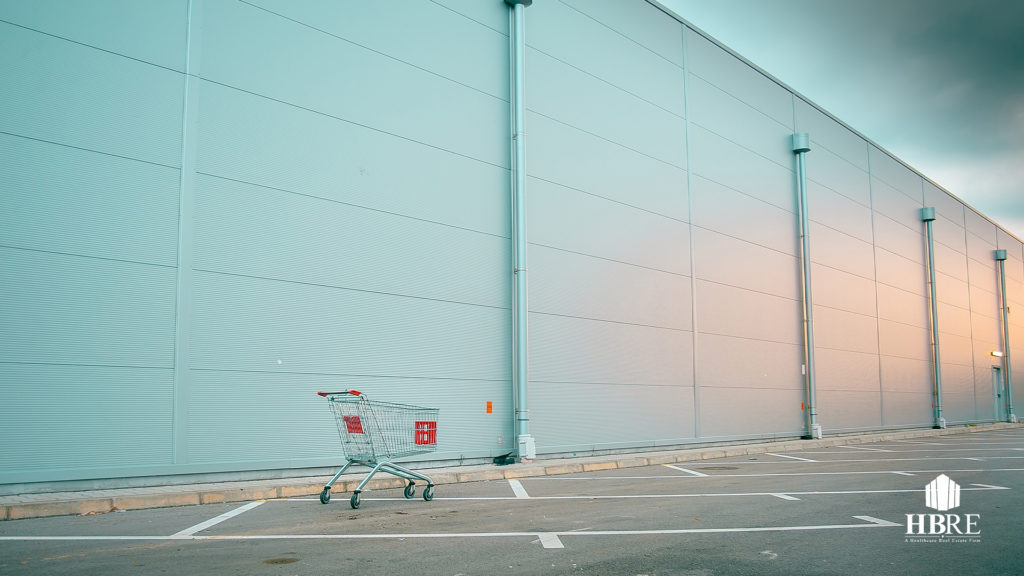“How to Turn a High School into a Patient Care Center in 15 Days.” This kind of article title was almost common in 2020.
It’s no secret that commercial spaces of all types have hosted temporary hospitals during the pandemic. Over the last few years, we’ve seen everything from convention centers to hotels transform into makeshift hospitals. But unique healthcare spaces existed long before the pandemic. While some of the more recent spaces were temporary, other healthcare projects evolved with long-term intentions.
In one of our previous blogs, The Benefits of Adaptive Reuse, we touched on some of these unique healthcare spaces. In 2019, a former Macy’s became a state-of-the-art medical facility in Ulster, New York. And other healthcare practices converted retail spaces into fully functioning medical offices. The term “medtail” was appropriately coined.
Medical facility owners are not afraid to get creative with their spaces if it means they can serve their patients in the right location for the right costs. These are a few interesting adaptive reuse projects in the healthcare sector.
Nashville: Vanderbilt University Medical Center
Back in 2009, Nashville health system Vanderbilt University Medical Center (VUMC) took up tenancy in the failing 100 Oaks Mall. The mall underwent renovations to house dermatologists, imaging centers, primary care doctors, etc. At the beginning of the project, about 20 medical offices filled half of the mall’s physical footprint. Over a decade later, this space is still a thriving medical center serving patients while still hosting several retailers along the front of the facility. This unique mall combines healthcare and shopping convenience, all sharing a parking lot.
Now, Nashville is looking for the same type of economic lift for another vacant shopping mall outside of the city. The city is heavily considering the purchase of the former Hickory Hall Mall and hopes to lease it to VUMC. VUMC would fill 600,000 square feet of the building. The local news station refers to this model as “mall-to-medicine,” but in commercial real estate, we know this type of project is medtail at its finest.
The University of Rochester Medical Center
At Marketplace Mall in Rochester, New York, former anchor retailers have left behind large vacant spaces. The University of Rochester Medical Center has entered an agreement to fill the space and add 350,000 square feet for medical use. The projected cost over the course of the building phases is about $227 million dollars. An ambulatory orthopedic center is now complete, and the next phases will include surgical space, a sports and rehab center, and a clinic with 144 beds. After the entire construction project is complete, this medical center plans to complete about 7,000 surgeries annually.
Adaptive Reuse Building Conversions in Healthcare
The recent shift in e-commerce and struggling brick-and-mortar stores have opened the doors to medtail spaces. And the growth of the life sciences sector has made office-to-lab conversions a bigger topic of conversation. Adaptive reuse is a viable option for many healthcare professionals looking for a new space.
However, medical professionals interested in converting an existing space need to review factors surrounding the property. They will need to consider the property’s proximity to patients and employees, local zoning laws, and what structural elements will need to change.
Healthcare real estate is a niche sector of commercial real estate. Healthcare properties usually have structural requirements that are unique to their specific use. This is why it is vital for healthcare professionals to hire commercial brokers who have a specialized focus in the healthcare industry.
HBRE is a full-practice healthcare real estate practice. Our team of real estate advisors serve landlords, tenants, physicians, and investors who buy, sell, or lease real estate. We have experience and in-depth knowledge of the healthcare sector and understand what details are involved in adaptive reuse projects. Healthcare professionals who are interested in adaptive reuse can trust HBRE to handle the commercial real estate side of the transaction.




